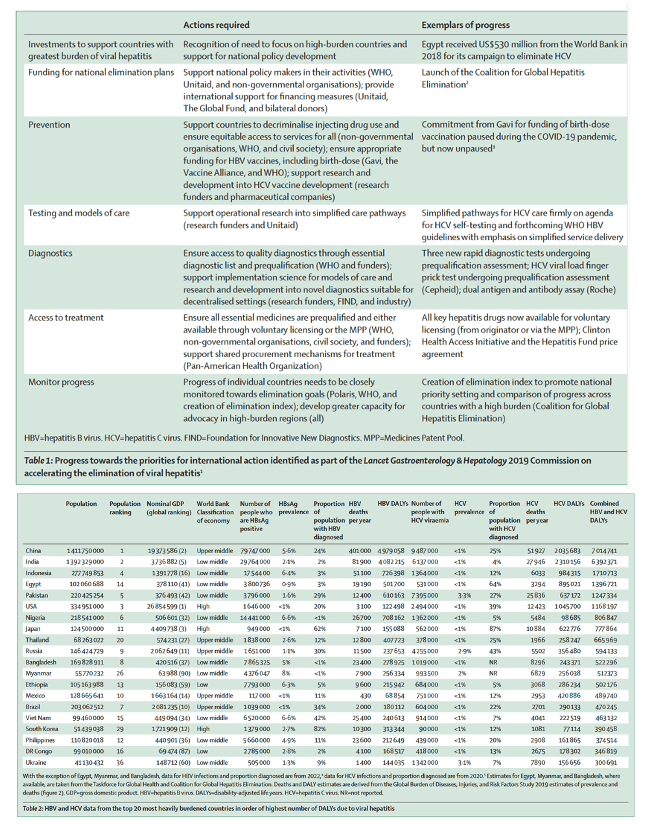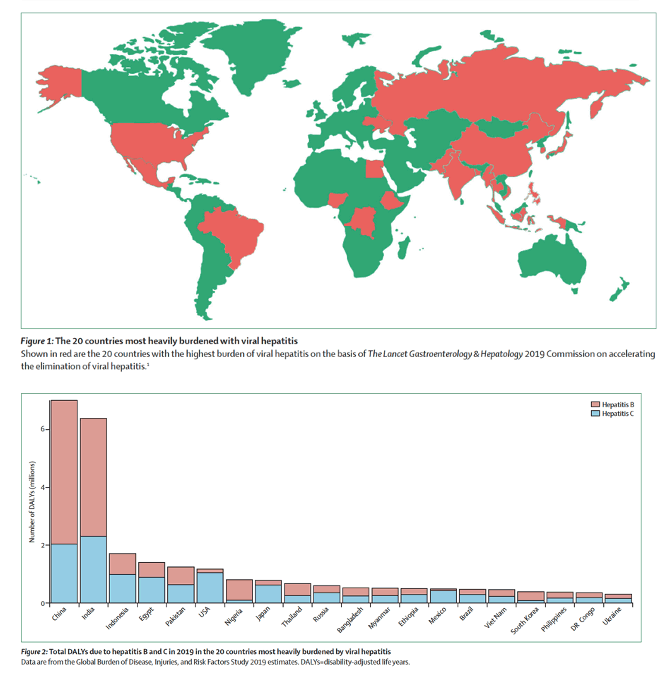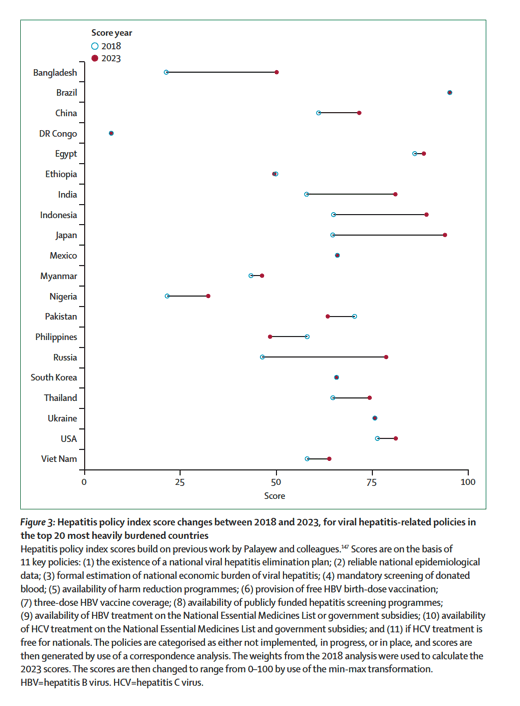| |
'not very good' Progress towards global elimination of viral hepatitis: a Lancet Gastroenterology & Hepatology Commission update
|
| |
| |
feb 14 2024
Download the PDF here
Conclusion
This Commission for the countries with the highest viral hepatitis burdens shows that although progress has been made in the past 5 years, we still have a long way to go to meet WHO elimination targets. Important areas of practice and policy not addressed in detail here include the global pricing of antivirals and insufficient progress towards decriminalisation of drug use in many high-burden settings. The decriminalisation of drug use will become increasingly important as programmes make progress in elimination and focus more on marginalised populations (eg, people who inject drugs, people who are incarcerated, and people experiencing homelessness). Finally, we consider that a focus on the most heavily burdened countries remains a helpful means of achieving hepatitis elimination goals, complementing broader international policy, and emphasising the need for political commitment at the national level. Further investment to support local clinicians, scientists, advocates, and activists is essential if national plans across these countries are to be developed, monitored, and implemented effectively.
The top 20 highest burdened countries (in disability-adjusted life years) account for more than 75% of the global burden of viral hepatitis. An effective response in these 20 countries is crucial if global elimination targets are to be achieved. In this update of the Lancet Gastroenterology & Hepatology Commission on accelerating the elimination of viral hepatitis, we convene national experts from each of the top 20 highest burdened countries to provide an update on progress. Although the global burden of diseases is falling, progress towards elimination varies greatly by country. By use of a hepatitis elimination policy index conceived as part of the 2019 Commission, we measure countries' progress towards elimination. Progress in elimination policy has been made in 14 of 20 countries with the highest burden since 2018, with the most substantial gains observed in Bangladesh, India, Indonesia, Japan, and Russia. Most improvements are attributable to the publication of formalised national action plans for the elimination of viral hepatitis, provision of publicly funded screening programmes, and government subsidisation of antiviral treatments. Key themes that emerged from discussion between national commissioners from the highest burdened countries build on the original recommendations to accelerate the global elimination of viral hepatitis. These themes include the need for simplified models of care, improved access to appropriate diagnostics, financing initiatives, and rapid implementation of lessons from the COVID-19 pandemic.



| |
| |
| |
|
|
|